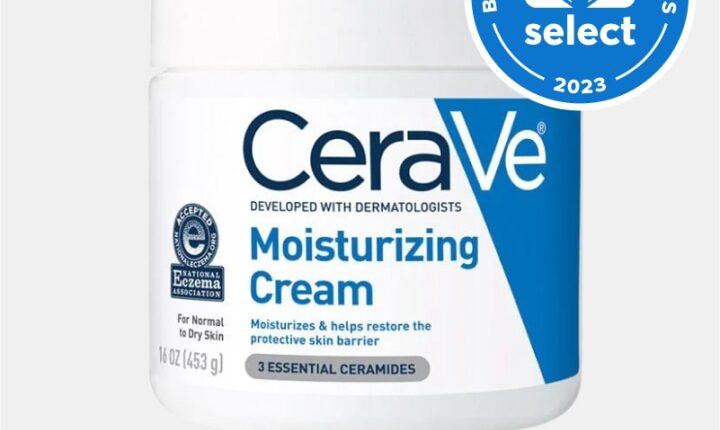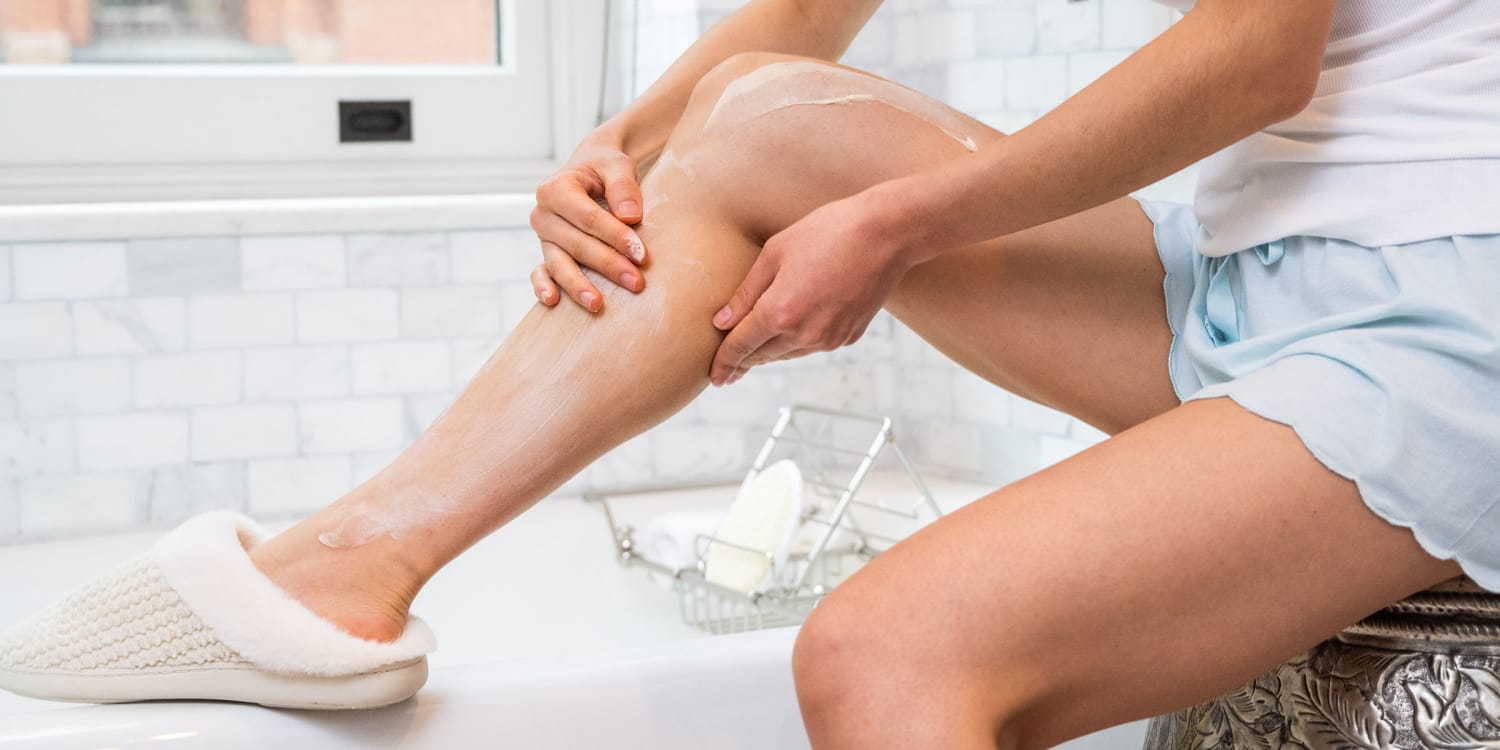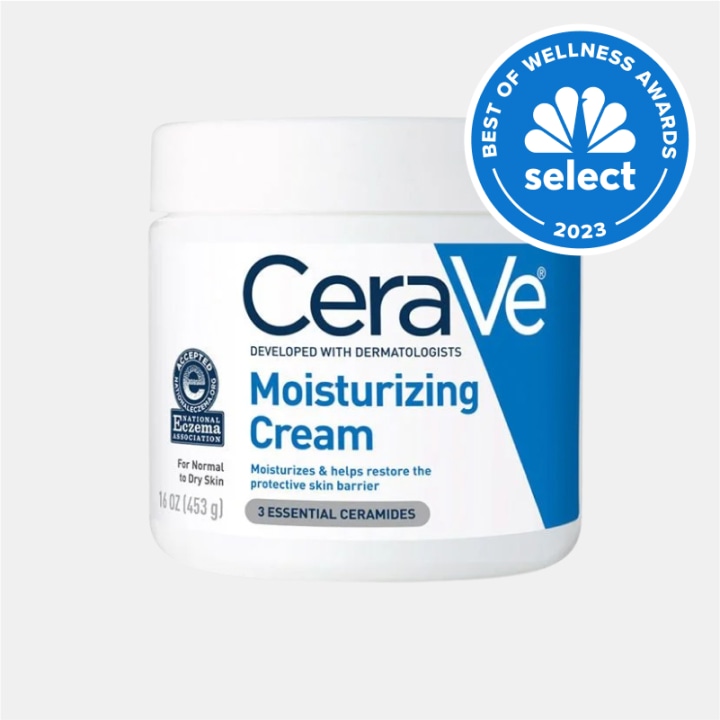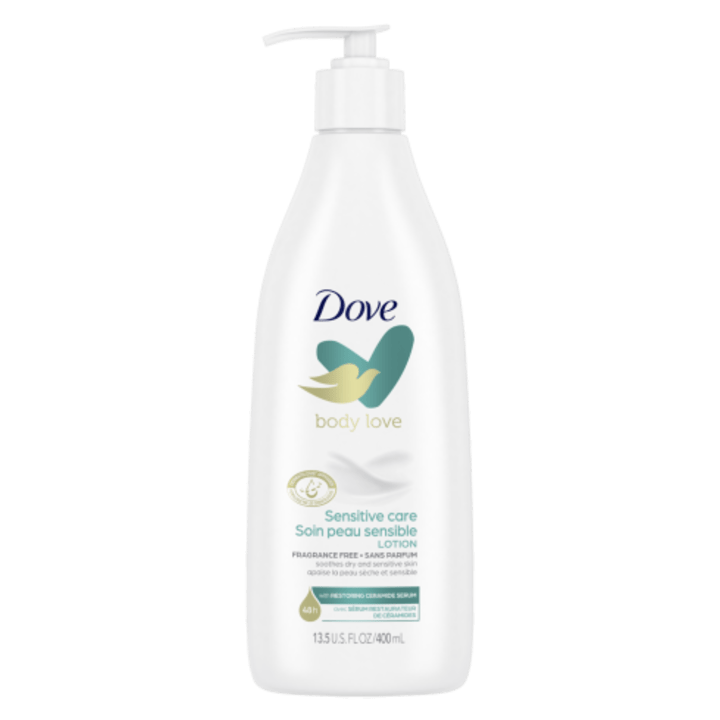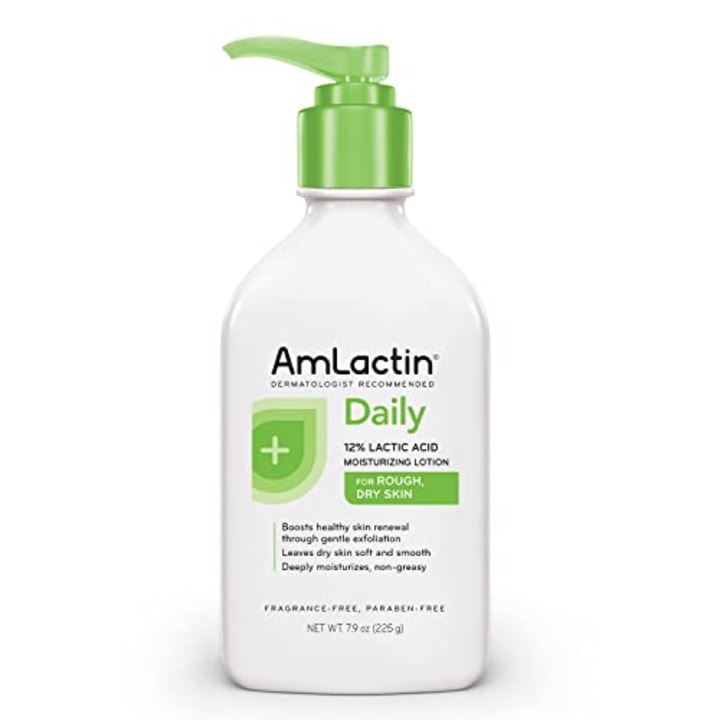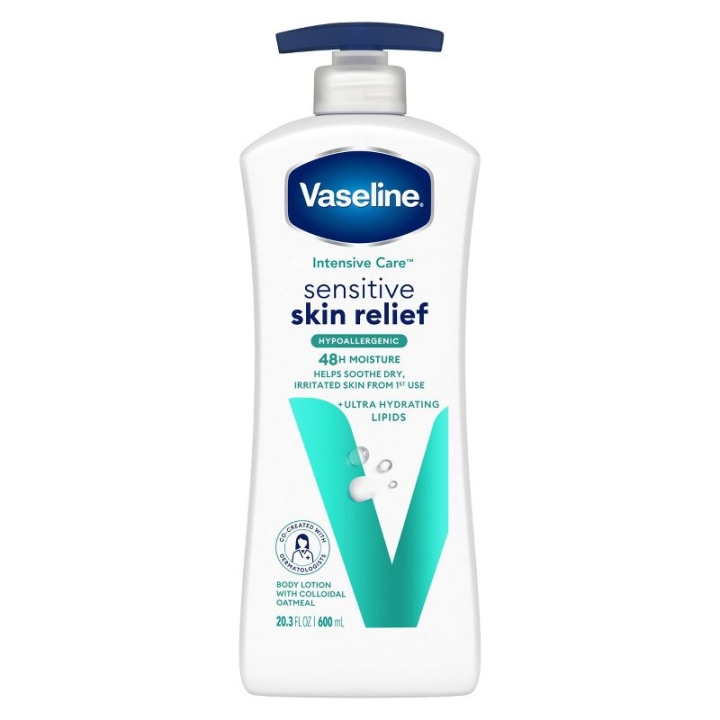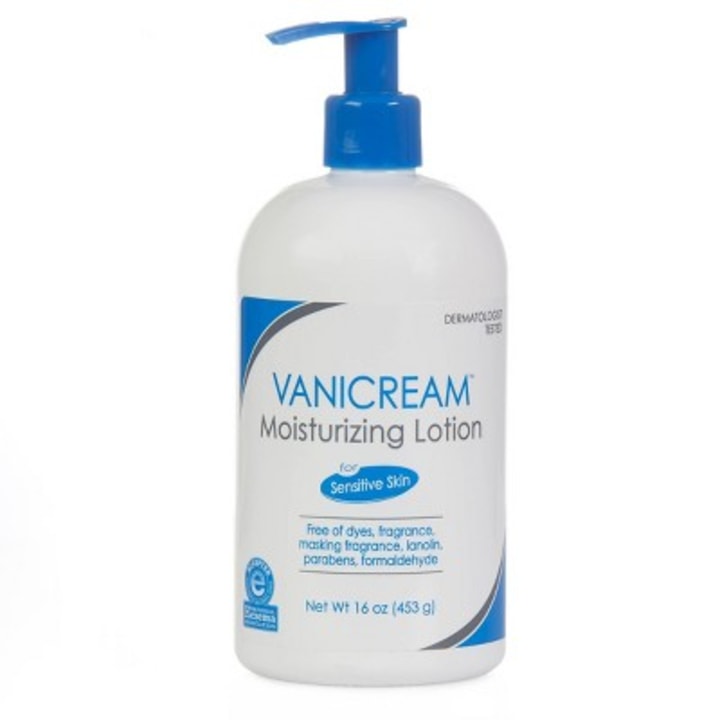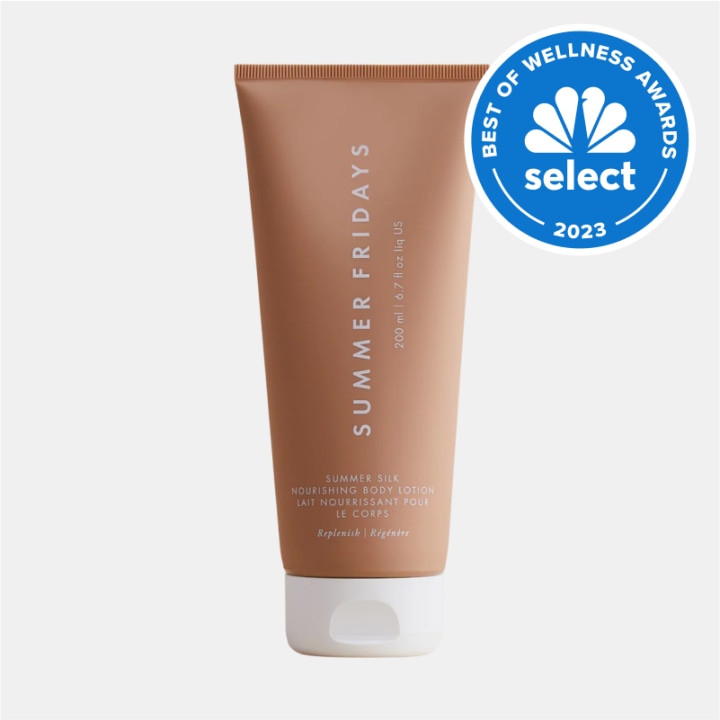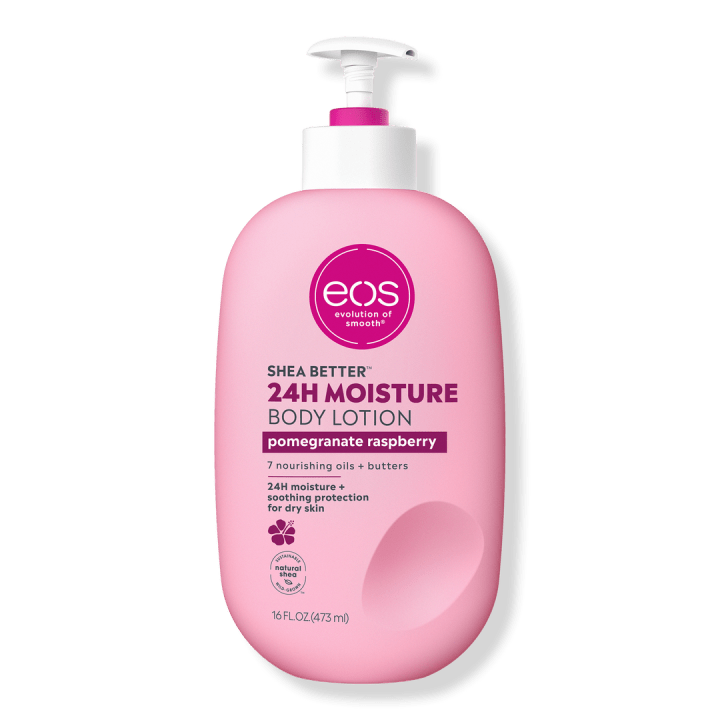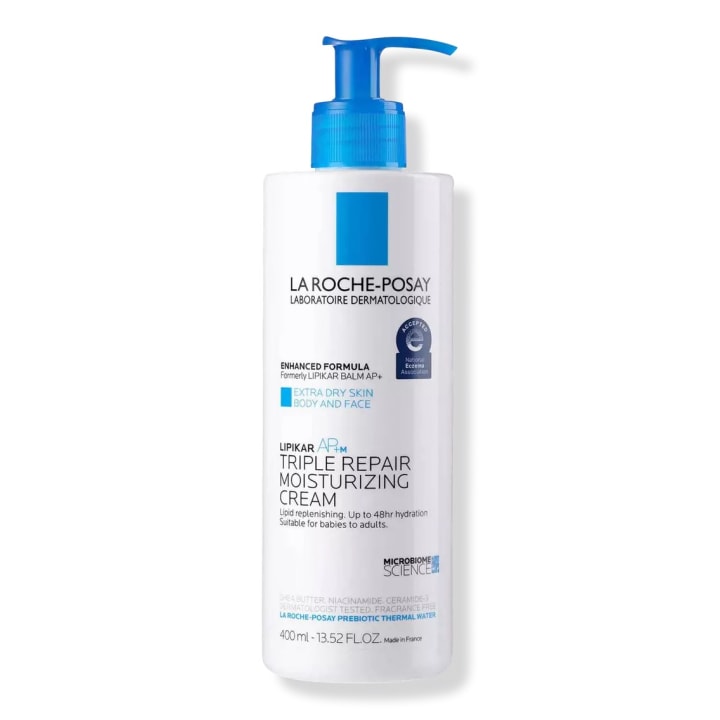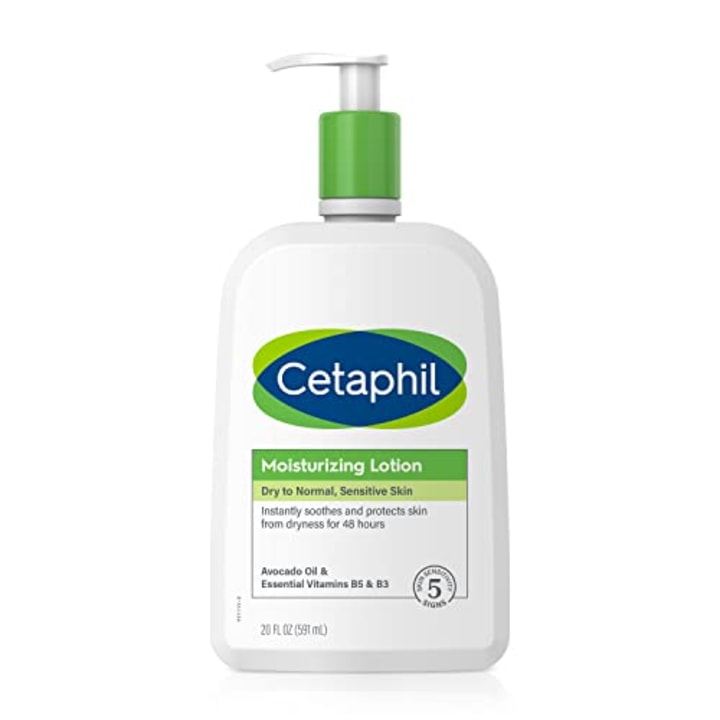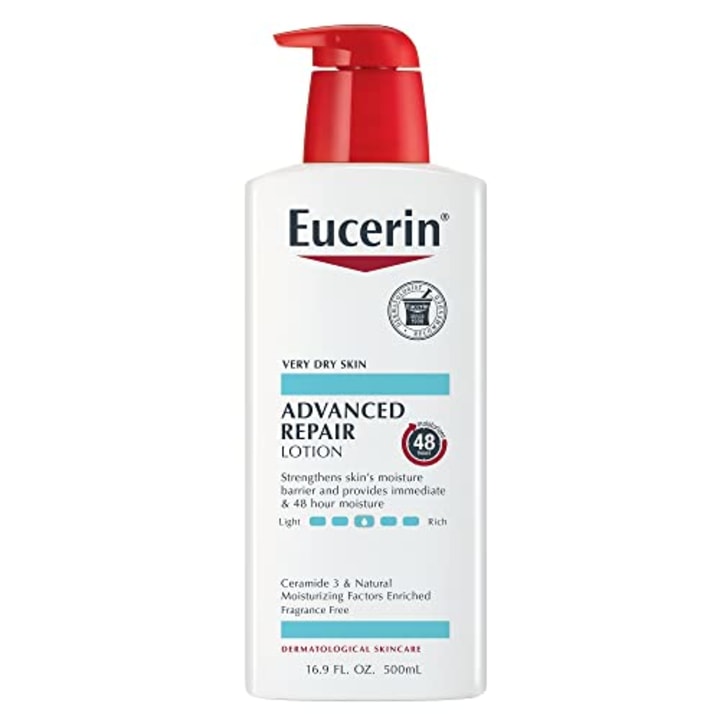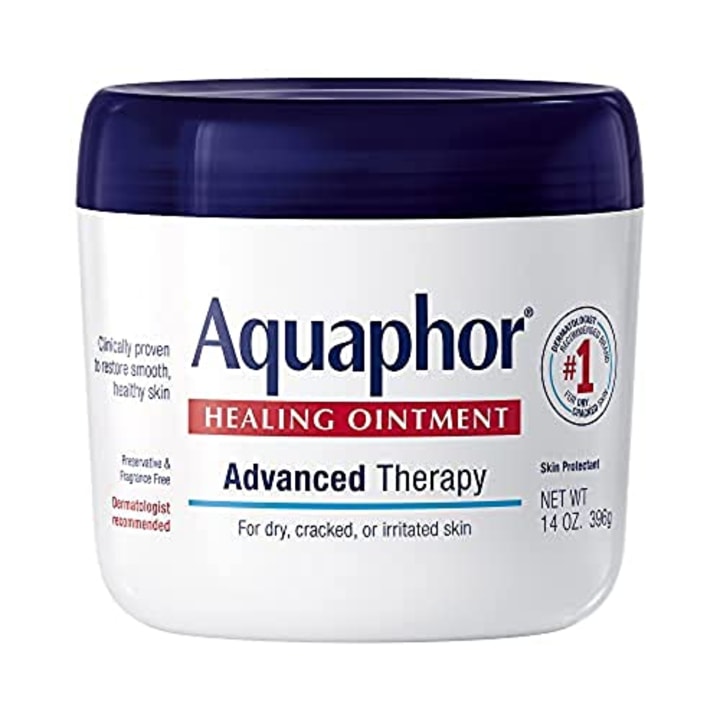Moisturized skin is a simple luxury. There are few things better than taking a warm shower after a busy day, soothing your itchy skin and putting on some cozy clothes. Every day can feel like a spa day if you take expert advice and moisturize daily. Plus, moisturizing your body regularly can improve your overall skin health and reduce dryness, flakiness and cracking.
Beyond making your skin feel soft, lotions can support the skin barrier and lock in moisture, says Dr. Hadley King, a board-certified dermatologist in New York City. “An impaired skin barrier will leave the skin more vulnerable to damage, dryness, irritation, inflammation and infection.”
SKIP AHEAD How to shop for body lotion | Lotion vs. cream
Our top picks
How we picked the best body lotions
To help us determine the best body lotions, we spoke to board-certified dermatologists about why moisturizing is important and what to look for in a quality body lotion. Many of our editors have tried these lotions on their own skin, as well. When shopping for body lotions, our experts recommended looking at the following factors:
- Ingredients: Look for humectants like hyaluronic acid that keep the skin hydrated. Emollients like ceramides help improve the skin’s texture, while occlusives like petroleum hold onto moisture and prevent the skin from drying out, according to our experts.
- Skin type: Consider a body lotion that fits your specific skin type. If you have very dry skin, experts told us to look for richer creams because they’re formulated with more oils to provide hydration. If you have sensitive skin, you should avoid fragrances and other potential irritants like dyes, while those with oily and acne-prone skin should consider lightweight, noncomedogenic moisturizers.
- Price: While there are nice lotions that are on the pricier side, many of the ones below are available on Amazon for less than $20.
The best body lotions of July 2023
With this expert guidance in mind, we rounded up a handful of dermatologist-recommended lotions and creams, plus some Select staff favorites, to help your dry skin heal.
CeraVe Moisturizing Cream
Dr. Shoshana Marmon, a board-certified dermatologist and assistant professor at New York Medical College, recommends this Select Wellness Award winner, which is formulated with hyaluronic acid and ceramides to heal dry skin. Select managing editor Leah Ginsberg also swears by it: “The two things I love most are its soft texture and I notice more of a moisturizing effect on my skin that lasts longer compared to other creams I’ve used and definitely more than when I use lotions,” she says. Ginsberg also appreciates that it doesn’t have a strong scent or a hefty price tag.
Dove’s Body Love Sensitive Care Body Lotion
King recommends this Dove body lotion because of its “rich moisturizing formula [that] supports the skin barrier with ceramides.” “[It’s] the ideal combination of humectants, emollients and occlusives,” she says, adding that it’s “a great choice for sensitive skin because it hydrates, supports the skin barrier and locks in moisture, and it doesn’t contain any ingredients that are likely to be irritating or drying.”
Amlactin Daily Moisturizing Lotion for Dry Skin
Marmon also recommends Amlactin’s moisturizer for dry skin. It’s formulated without parabens or fragrances and relies on humectants like glycerin to hydrate the skin. Also, the lotion contains 12% lactic acid, which the brand says is both a powerful humectant and gentle exfoliant that can relieve skin issues like keratosis pilaris.
Vaseline Intensive Care Sensitive Skin Relief Lotion
King also recommends this option from Vaseline, which “contains humectants like glycerin to hydrate the skin, emollients like shea butter and sunflower seed oil to support the skin barrier, and occlusives like petrolatum to lock in moisture,” but no irritating ingredients, she says. King also notes that it’s formulated with colloidal oatmeal, which helps to soothe and protect the skin.
Vanicream Moisturizing Lotion
Vanicream is by no means a new, splashy brand (in fact, it’s been around since the 70s), but it’s a stalwart in the world of skin and hair care. In fact, dermatologists in our guide to the best treatments for razor burn, the best shave gels, facial moisturizers, products for rosacea and best shampoos for every hair type all feature Vanicream’s gentle, fragrance-free products. Marmon recommends their fragrance-free moisturizing lotion as a quality option for hydrating your skin.
Summer Fridays Summer Silk Nourishing Body Lotion
This Summer Fridays body lotion is a Select Wellness award winner for best body moisturizer. It’s formulated with humectants, emollients and occlusives like hyaluronic acid, ceramides, glycerin and natural oils to hydrate and soften the skin, according to the brand. This lotion, which has a coconut, vanilla and almond scent, is in constant rotation for NBC page Mikhaila Archer because it has a great texture that doesn’t feel too thin or thick on her skin.
Eos Shea Better 24H Moisture Body Lotion in Pomegranate Raspberry
Though the dermatologists we spoke to recommend proceeding with caution with heavily-fragranced moisturizers, King has recently been using this lotion from Eos and says she’s very happy with how moisturizing it is. Plus, it’s packed with humectants, emollients and occlusives like shea butter, glycerin, triglycerides, cocoa seed butter, petrolatum, mineral oil and sunflower seed oil, she notes.
La Roche-Posay Lipikar AP+M Triple Repair Body Moisturizer for Dry Skin
I’ve been using La Roche-Posay products for years and love their gentle scent and the fact that they’re lightweight, providing deep moisture without leaving behind a greasy residue. Marmon recommends this moisturizer from the French beauty company, which is formulated with ceramides, shea butter, glycerin and niacinamide.
Cetaphil Moisturizing Lotion
Select reporter Harry Rabinowitz is a fan of Cetaphil’s lotion as both a body and face moisturizer. “It’s totally unscented, it comes in a large, affordable bottle, and I’ve seen it recommended by many dermatologists,” he says. Cetaphil is formulated with hydrating glycerin and is noncomedogenic, meaning it shouldn’t clog pores or cause breakouts.
Eucerin Advanced Repair Body Lotion
This highly rated body lotion helps keep skin moisturized for up to 48 hours, according to the brand. The formula relies on ceramides, an emollient our experts recommend, to hydrate the skin and prevent dryness. Eucerin’s Advanced Repair Body Lotion is fragrance-free and has a 4.8-star average rating from over 25,215 reviews on Amazon.
Aquaphor Healing Ointment
Not quite a lotion, not quite a cream, but deserving of an honorable mention from Marmon is Aquaphor’s healing ointment. The balm won’t spread across your skin like the other recommendations on this list, but it’s great for spot treating rough patches on your skin and other itchy spots. It also ranks in both Select’s guide on how to heal dry, chapped lips and the best creams to heal dry skin.
How to shop for a body lotion
“Moisturizer is a catch-all term for something that hydrates the skin,” says Marmon. Whether a product is sold as a lotion, cream, body butter or a similar product (more on what distinguishes each below), they should contain humectants to hydrate the skin, emollients to support the skin barrier and occlusives to lock in moisture, says King. Some lotions can also contain additional ingredients for targeted concerns, like “lactic acid to gently exfoliate rough or bumpy skin, or retinol for anti-aging,” she adds.
- Humectants: “Humectants like hyaluronic acid, glycerin and urea attract water from the environment to increase moisture in the skin,” says Marmon. “They need to be used along with the other components in order to retain the water content,” says King.
- Emollients: Emollients “help in skin barrier function, membrane fluidity and cell signaling leading to overall improvement in skin texture and appearance,” says King. They soothe the skin, filling in any gaps and cracks. Some examples of emollients in moisturizers include squalene, shea butter, fatty acids and ceramides.
- Occlusives: “Occlusives are oils and waxes which form an inert layer on the skin and physically block transepidermal water loss,” says King, meaning they enable the skin to hold onto moisture. Examples include petrolatum (the main ingredient in Vaseline, or Aquaphor, for example), beeswax, mineral oil, silicones, lanolin and zinc oxide. “Balms and ointments are more commonly occlusive,” notes Marmon.
As for what to avoid — especially if you have rosacea or sensitive skin — are moisturizers that contain fragrance or are formulated with dyes or other potential irritants, says Marmon. Shoppers should also avoid parabens, sulfates, phthalates, synthetic dyes and alcohol, she adds.
If you have oily or acne-prone skin, “look for a lightweight moisturizer or lotion labeled “non-comedogenic” or oil-free, says Marmon. Comedogenic ingredients, like coconut oil, may clog pores, causing breakouts.
What is the difference between a lotion and a cream?
Lotions, creams, and body butters are all moisturizing products, but they have different consistencies and properties, says Marmon:
- Lotions are typically water-based, lightweight and “have a thinner consistency that makes them easy to apply and quick to absorb,” says Marmon. They provide lighter hydration and are ideal for normal to oily skin.
- Creams, on the other hand, are richer and are typically formulated with higher oil content, says Marmon. They are “ideal for normal to dry skin and great for aging skin,” notes Marmon, especially during menopause, when lowered estrogen levels can cause the skin to become dryer and thinner.
- Body butters or other balms are often thicker and more concentrated. They typically contain the highest proportion of oil and natural fats and are great for “very dry or rough skin, and areas like the elbows, knees and heels,” says Marmon.
What should you do if you have rosacea or eczema?
If you struggle with skin conditions like rosacea or eczema, King recommends avoiding potentially irritating ingredients like hydroxy acids or retinol. “Stick with good moisturizers that contain humectants, emollients and occlusives,” she says.
Both King and Marmon recommend applying lotions or moisturizers after showering to lock moisture in, but “people with eczema, psoriasis, severely dry skin or other skin barrier issues may need more frequent moisturization,” says Marmon.
Meet our experts
At Select, we work with experts who have specialized knowledge and authority based on relevant training and/or experience. We also take steps to ensure all expert advice and recommendations are made independently and without undisclosed financial conflicts of interest.
Why trust Select?
Christina Colizza is a former editor at Select and has been a product reviewer since 2018. She covers a range of self care and skin care topics like shampoos, eyebrow serums and more.
Catch up on Select’s in-depth coverage of personal finance, tech and tools, wellness and more, and follow us on Facebook, Instagram, Twitter and TikTok to stay up to date.
Source: | This article originally belongs to Nbcnews.com
